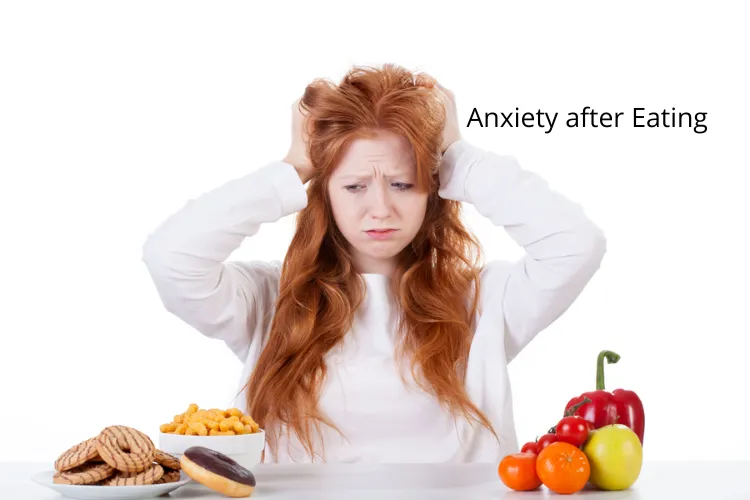Anxiety is such a fleeting emotion that sometimes it is difficult to predict it. One moment you could be all serene and relaxed but the next could be full of trepidation! A familiar strain creeps up into your chest. Your hands start to sweat; you feel light headed or faint and have trouble breathing. Well, these are all symptoms of anxiety! They come unannounced, unwelcomed in the least expected situations only to haunt us for the next few minutes until we do something to make it go away. After experiencing anxiety for a while, you could begin to see a pattern.
When you come across certain triggers, such as an important business meeting, a busy schedule, or irritation in your partner’s voice, you would notice your mood quickly shifts toward anxiety.
Some people experience Anxiousness after Eating. There could be various reasons for it that is biological, psychological or even metaphysical.
Understanding Hypoglycaemia
After eating or typically within a few hours, you will have low blood sugar if you have reactive hypoglycaemia. It’s common for an increase in insulin production to be followed by a dip in blood sugar, which can leave you feeling agitated, anxious and even a little bit confused.
Other bodily modifications that resemble signs of anxiety noticed include:
- Dizziness
- Shakiness
- Increased Perspiration
- Palpitations
Reactive hypoglycemia is frequently brought on by processed carbohydrates and foods rich in sugar, but it can also be brought on by drinking alcohol or caffeine on an empty stomach.
How to Deal with it?
You can identify patterns by keeping a food journal for a week, such as whether symptoms typically manifest at particular times of the day or just after eating particular meals.
Tips to Manage it
- Increase your intake of whole grains and fiber.
- Pick lean sources of protein including tofu, cottage cheese, chicken, eggs, etc.
- Fruit and nutritious fats like almonds, plain yoghurt, and peanuts make great snacks.
- Be careful with coffee and alcohol, especially before meals or on empty stomach.
- Start your day with complex dry fruits or full fruits like bananas.
If dietary modifications don’t help, it’s recommended to visit your healthcare physician because reactive hypoglycaemia occasionally has a medical explanation.
Why Food Acts as a Trigger?
Even if they don’t directly alter your blood sugar, some foods can cause anxious symptoms. Among the possible triggers are:
- Histamine-containing fermented foods like cheese and cured meats.
- Caffeine that interferes with sleep and make symptoms of anxiety worse.
- Trans fat (partially hydrogenated oils)
- White wheat, sugar, and other refined carbohydrates can raise adrenaline levels and produce fear or anxiety.
- Alcohol and substance use and abuse.
How to Deal with it
Even though you might not have to completely stop eating these things, keeping a food journal might help you spot any trends between consumption and elevated anxiety. Pay attention to labels and the amount of sugar in any packaged meals you consume.
Additional Advice
- Whole grains should be substituted for processed carbs.
- Instead of juice or soda, sip on water (plain or sparkling) or unsweetened herbal tea.
- Increase your intake of fresh fruits and vegetables as wholes and not finely chopped.
- Include additional foods rich in omega-3 fatty acids and probiotics.
- Get your food sensitivities and allergies tested. Food allergies can cause mild to severe symptoms, many of which might be mistaken for anxiety or panic attacks.
You may also Observe
- Having trouble breathing
- Light headedness
- Throat discomfort or swelling, as well as tingling or numbness in the mouth
- Vomiting or abdominal pain
- Quick heartbeat
These symptoms may not start to manifest for an hour or two after eating, but they can start to manifest very quickly. They frequently become active after exercise. Food sensitivities, which are distinct from allergies, are common. Typical sensitivity sources include: Dairy products, veggies, sulphates, and other additions.
Anxiety of any kind can hamper your lifestyle. Speak to our mental Wellness Experts at Ganeshaspeaks.com to address your anxieties.
